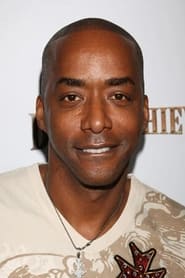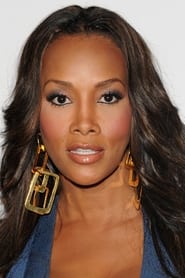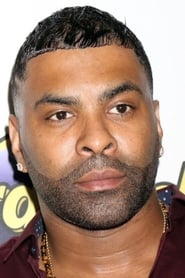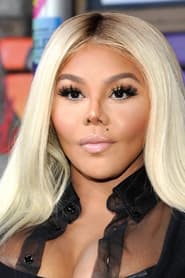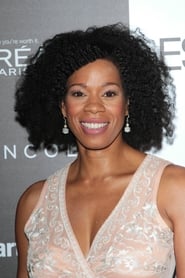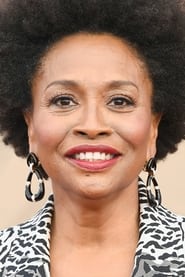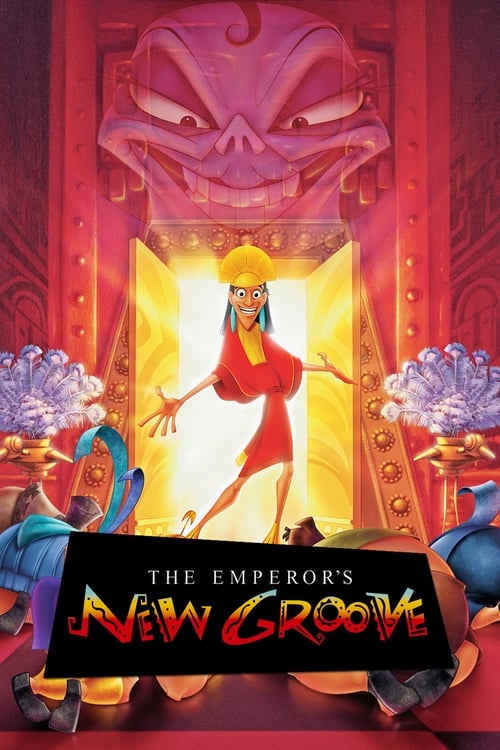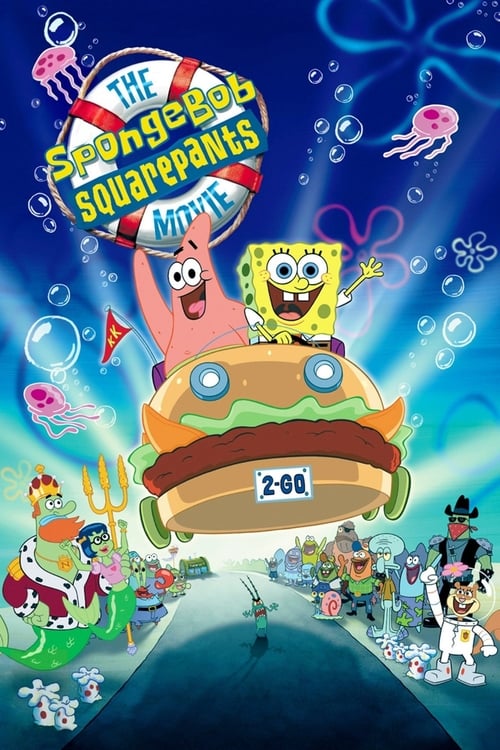
Ask Your Own Question
What is the plot?
The Charlotte Coliseum buzzes with the electric energy of a packed arena, the roar of the crowd a constant soundtrack to Jamal Jeffries's life. On this night, June 21, 2002, Jamal, the star shooting guard for the Charlotte Beat, is in the thick of a heated game. His talent is undeniable, his moves flashy, but his temper is a ticking time bomb. A controversial call from the referee sends Jamal over the edge. In a fit of rage, he tears off his jersey, then his shorts, standing naked in the middle of the court, defiantly flashing the stunned audience. The crowd erupts in a mix of shock and laughter, but the league officials are not amused. Jamal is ejected, suspended indefinitely, and his career as a professional basketball player comes to a screeching halt.
Back in his opulent mansion, Jamal's world begins to crumble. His agent, Lorne Daniels, a man who has profited from Jamal's fame, tries desperately to find him a new team, but no one wants a player with Jamal's reputation. "Jamal, I've called every team in the league," Lorne says, his voice tinged with frustration. "They all say the same thing: you're too much of a liability." Jamal, lounging on his leather couch, waves him off. "They'll come around. I'm Jamal Jeffries. I'm the best." But Lorne shakes his head. "Not anymore. I'm cutting you loose. You're on your own." Jamal's girlfriend, Tina, who has tolerated his antics only for the money and fame, packs her bags. "You're not the man I thought you were," she says coldly. "Without the money, you're nothing." She walks out, leaving Jamal alone in his empty mansion.
The days that follow are a blur of humiliation and loss. Jamal's endorsements drop him, his lavish spending leaves him bankrupt, and his belongings are repossessed. The bank forecloses on his mansion, and Jamal finds himself on the streets, his pride shattered. He wanders the city, his basketball skills his only remaining asset. Desperate to return to the game he loves, Jamal stumbles upon an advertisement for the Women's Basketball League (WBL). An idea sparks in his mind, a desperate gamble. He visits a costume shop, buys a wig, and practices his female persona. He calls himself Juwanna Mann.
Jamal, now Juwanna, auditions for the Charlotte Banshees, the WBL team. The coach, skeptical but intrigued by Juwanna's raw talent, offers her a spot on the team. Juwanna quickly becomes a star, her aggressive style and natural athleticism earning her the respect of her teammates. Among them is Michelle, a talented and beautiful player who becomes Juwanna's confidante. Juwanna, or rather Jamal, finds himself developing romantic feelings for Michelle, but he cannot act on them. Michelle knows him only as her friend, Juwanna, and Jamal is trapped in his deception.
The locker room scenes are fraught with tension. Juwanna must navigate the intimate spaces of her teammates, always on guard, always afraid of being discovered. The showers are a particular source of anxiety, with Juwanna finding excuses to avoid them. The team's camaraderie grows, and Jamal begins to learn the value of teamwork, a lesson he never grasped in his selfish NBA days. "You're not just playing for yourself anymore," Michelle tells Juwanna. "You're playing for the team."
Meanwhile, Michelle's personal life is complicated by her relationship with Romeo, a flashy rapper who is more interested in his own fame than in Michelle. Romeo's aggressive sidekick, Puff Smokey Smoke, takes a liking to Juwanna, making advances that Juwanna must constantly fend off. "You're a real woman, Juwanna," Puff says, his silver teeth glinting. "I can tell." Juwanna laughs nervously, deflecting his advances with humor and wit.
The team's success on the court is mirrored by Jamal's personal growth. He becomes more disciplined, more focused, and more empathetic. He learns to listen to his teammates, to support them, and to put the team's needs above his own. The Banshees climb the ranks, and Juwanna becomes a fan favorite. Jamal's life as Juwanna is a revelation, but the strain of maintaining his secret is constant.
One night, Juwanna goes on a date with an oblivious man who is completely unaware of her true identity. The date is a comedy of errors, with Juwanna struggling to maintain her facade. "You're so different from other women," the man says. "You're strong, confident." Juwanna smiles, but inside, she feels a pang of guilt. The date ends with Juwanna making a quick exit, her secret intact.
The tension builds as the Banshees approach the playoffs. Jamal receives news that he has a chance to return to the men's league. The hearing is scheduled for the same day as the Banshees' first playoff game. Jamal is torn. The opportunity to return to the NBA is a dream, but the Banshees have become his family. He confides in Michelle, who encourages him to follow his heart. "Whatever you decide, I'll support you," she says.
The day of the playoff game arrives. Jamal, as Juwanna, suits up for the Banshees. The arena is packed, the atmosphere electric. The game is intense, with both teams fighting for every point. Jamal's skills shine, and the Banshees take the lead. As the clock winds down, the score is tied. Jamal, playing as Juwanna, drives to the basket, leaps for a dunk, and shatters the backboard with a thunderous slam. The crowd erupts in cheers, but in the moment of triumph, Jamal's wig falls off, revealing his true identity to everyone in the arena.
The silence is deafening. The Banshees, the fans, the officials--all are stunned. Jamal stands there, exposed, his secret laid bare. The coach, furious and betrayed, immediately fires Jamal from the team. "You lied to us," she says, her voice trembling with anger. "You're not welcome here." The Banshees, devastated by the deception, begin to suffer on the court, their unity shattered.
Jamal leaves the arena, his heart heavy with regret. He has learned valuable lessons about teamwork, empathy, and the consequences of his actions. The film ends with Jamal walking away from the arena, the sound of the crowd fading into the distance. His future is uncertain, but he is a changed man, ready to face whatever comes next.
The final scene shows Jamal sitting alone on a park bench, watching a group of kids play basketball. He smiles, a sense of peace settling over him. The journey has been tumultuous, but Jamal has found a new perspective on life and the game he loves. The story of Juwanna Mann is a tale of redemption, of learning to play not just for oneself, but for the team, and for the love of the game.
What is the ending?
In the ending of "Juwanna Mann," the main character, Jamal Jeffries, who has been impersonating a woman named Juwanna Mann to play in the WNBA, ultimately reveals his true identity during a championship game. This revelation leads to a confrontation with his former teammates and a realization of his own mistakes. In the end, Jamal learns to embrace his true self and finds a way to reconcile with his past, leading to a hopeful future.
Now, let's delve into the ending in a detailed, chronological narrative.
As the championship game unfolds, the atmosphere is electric with excitement. The crowd is roaring, and the stakes are high. Jamal, still disguised as Juwanna Mann, is playing exceptionally well, showcasing his skills on the court. His teammates, initially unaware of his true identity, are rallying around him, inspired by his performance. However, the tension is palpable as Jamal grapples with the weight of his deception.
In a pivotal moment during the game, Jamal's former teammate, the fierce and competitive Michelle, begins to suspect that Juwanna is not who she claims to be. Her instincts kick in, and she starts to piece together the clues. As the game progresses, Jamal feels the pressure mounting, torn between the thrill of playing and the guilt of living a lie.
The climax occurs when Jamal makes a game-winning shot, but instead of celebrating, he hesitates. The crowd is on their feet, but Jamal's internal conflict reaches a boiling point. In a moment of vulnerability, he decides to reveal his true identity. He removes the wig and jersey, standing in front of the shocked audience and his teammates, declaring, "I'm Jamal Jeffries!" The arena falls silent, and the shockwaves of his revelation ripple through the crowd.
The reaction is mixed; some fans cheer for his bravery, while others are outraged by the deception. Michelle confronts Jamal, expressing her feelings of betrayal and anger. Jamal, feeling the weight of his actions, apologizes sincerely, acknowledging that he should have never hidden behind a false identity. He explains that he wanted to prove himself and earn respect in a league that often overlooks male players.
As the dust settles, Jamal's teammates begin to process the situation. They realize that despite his deception, Jamal's passion for the game and his talent are genuine. Michelle, after a moment of reflection, softens her stance. She recognizes that Jamal's journey was about more than just basketball; it was about self-acceptance and understanding one's worth.
In the final scenes, Jamal is seen working to rebuild his relationships with his teammates and the league. He expresses a desire to support women's basketball and advocate for equality in sports. The film closes with Jamal attending a WNBA game, this time as himself, cheering for the women he once played alongside. The message is clear: authenticity and respect for oneself and others are paramount, and true success comes from being true to who you are.
The fate of each main character is as follows: Jamal Jeffries, having learned from his mistakes, embraces his identity and seeks to make amends. Michelle, while initially hurt, finds a way to forgive Jamal and recognizes the importance of unity in sports. The other teammates, though shocked, come to appreciate Jamal's talent and passion, leading to a more inclusive understanding of the game. The film concludes on a hopeful note, emphasizing growth, acceptance, and the importance of being true to oneself.
Is there a post-credit scene?
In the movie "Juwanna Mann," there is no post-credit scene. The film concludes with the main storyline wrapping up as the characters find resolution to their arcs. The final moments focus on the celebration of the basketball team's success and the personal growth of the protagonist, Jamal Jeffries, who learns valuable lessons about identity, acceptance, and love throughout his journey. The credits roll without any additional scenes or content following them.
What motivates Jamal Jeffries to disguise himself as Juwanna Mann?
Jamal Jeffries, a professional basketball player, is motivated to disguise himself as Juwanna Mann after being banned from the league due to a scandal involving his behavior. Facing the loss of his career and the inability to play the sport he loves, he decides to impersonate a female basketball player to join the WNBA and prove his worth on the court.
How does Jamal's relationship with the other female players evolve throughout the film?
Initially, Jamal, as Juwanna, faces skepticism and hostility from the other female players, particularly from the team captain, Michelle. However, as he integrates into the team, he begins to form genuine friendships and earns their respect through his skills and dedication. This evolution highlights his internal struggle as he grapples with his identity and the deception he maintains.
What challenges does Jamal face while living as Juwanna Mann?
While living as Juwanna Mann, Jamal faces numerous challenges, including maintaining his disguise, dealing with the physical demands of playing in the WNBA, and navigating the complexities of female camaraderie. He also struggles with the emotional toll of lying to his teammates and the fear of being discovered, which creates tension and conflict throughout the story.
How does the character of Michelle change in her perception of Juwanna?
At first, Michelle is critical and dismissive of Juwanna, viewing her as an outsider and a distraction to the team. However, as she witnesses Juwanna's talent and determination, her perception shifts. She begins to appreciate Juwanna's contributions and ultimately becomes one of her strongest supporters, showcasing a journey from rivalry to camaraderie.
What role does the character of the coach play in Jamal's journey as Juwanna Mann?
The coach plays a pivotal role in Jamal's journey as Juwanna Mann by serving as a mentor and a source of guidance. Initially skeptical of Juwanna's abilities, the coach eventually recognizes her talent and hard work, which helps Jamal gain confidence. The coach's support becomes crucial as Jamal navigates the challenges of his dual identity and strives to succeed in the league.
Is this family friendly?
"Juwanna Mann," produced in 2002, is a comedy that centers around a professional basketball player, Jamal Jeffries, who faces a career crisis and decides to disguise himself as a woman named Juwanna Mann to play in the WNBA. While the film has comedic elements, there are several aspects that may be considered objectionable or upsetting for children or sensitive viewers:
-
Cross-Dressing and Gender Identity Themes: The film explores themes of gender identity and cross-dressing, which may be confusing or uncomfortable for younger audiences.
-
Sexual Humor: There are instances of sexual innuendos and jokes that may not be appropriate for children, including references to relationships and sexual situations.
-
Stereotypes and Prejudice: The film touches on issues of race and gender stereotypes, which may be sensitive topics for some viewers.
-
Mature Language: There are instances of strong language and profanity that may not be suitable for younger audiences.
-
Romantic Relationships: The film includes romantic subplots that involve adult themes, which may not be appropriate for children.
-
Physical Comedy: Some scenes involve slapstick humor that could be perceived as violent or inappropriate, depending on the context.
Overall, while "Juwanna Mann" is a comedy, its themes and humor may not be suitable for all family audiences, particularly younger children.



